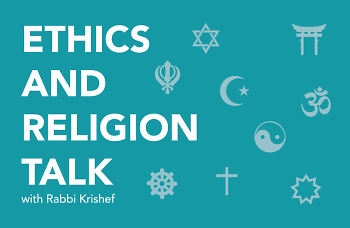Last week, we presented responses which argued that no, five-year-old children should not be asked to make such decisions. This week, in part 2, we see responses which argue that in cases such as this one, parents should honor their child’s wishes.
Linda Knieriemen, Senior Pastor at First Presbyterian Church in Holland, responds:
"In the situation presented in this article, a child with a debilitating and ultimately fatal disease, one requiring painful procedures during episodic treatment, yes, the wishes of the child should be considered. Chronically ill children develop a maturity more quickly than their peers. But the parents hold responsibility for the decision.
"A palliative care or hospice team can help parents clarify values about meaning of life, quality of life, and what constitutes medical over-treatment. While it might seem valid that the parents are honoring the child’s wishes, they themselves need spiritual, medical, and psychological guidance from an objective team asking ‘when is treating a chronically and terminally ill patient no longer loving?"
The Reverend Colleen Squires, minister at All Souls Community Church of West Michigan, a Unitarian Universalist Congregation, responds:
"Unitarian Universalists believe all medical decisions should be made by the patient in consolation with their doctor. In the case of minor children, their parents should also be part of the decision making. Reading this article, the 5 year old has asked to die at home and to stop medical intervention. The parents are abiding by their child's request. The child has an incurable disease and has endured this illness her entire life. This is a very specific case and the facts to this particular case matter. The child has made her wishes known and the parents are respecting their child’s dying wish. Ultimately the parents are making the final decision on behalf of their child. In this one case I would support the parents honoring their child’s request."
Fred Stella, the Pracharak (Outreach Minister) for the West Michigan Hindu Temple, responds:
"I would like to clarify that we are speaking specifically of the case set before us, or cases very similar. After reading this heart wrenching account I have the greatest compassion for the little girl involved. Hinduism allows for us to let nature take its course as it seems to be doing here. The wish to die at home and the desire to forego more pain in hopes of a few more days on this plane are logical and well thought. No argument here.
"Of course, every situation must be evaluated by a team of parents, physicians, clergy (if desired) and the patient."
The Rev. Steven W. Manskar, a retired United Methodist pastor, responds:
"Of course, common sense tells us five-year old children are not equipped to make life-or-death decisions. But that really is not what the CNN article is about. I hope readers will be given a link and take time to read the story about Julianna and her parents, Steve and Michelle.
"Julianna suffers from a severe case of a rare, congenital disease. The disease has take over her body. It prevents her from using her limbs and eating solid foods. Breathing is increasing difficult for her, so she requires mechanical assistance. Her condition is extremely fragile, making any infection potentially fatal. The prognosis for the disease is that it will continue to progress and shut down more organ systems. Julianna will never recover from the disease.
"The many hospitalizations and painful treatments prolong her life, and her suffering. Her parents and siblings suffer with Julianna. All of them face the disease with courage and faith. Because Steve and Michelle love their daughter and want only the best for her, following a series of painful hospitalizations, they asked Julianna if, when the next infection or other crisis occurs, she would want to go to the hospital or to heaven. Steve and Michelle know their daughter well enough to know she understood going to ‘heaven’ meant death. Julianna also knows she will never recover from the disease. Death is the only way to end her suffering. Death is the only way she will experience healing and wholeness for herself, and for her family.
"Julianna’s story is a story of love. Her parents love her enough to give her a say in what happens to her. It’s also a story that tells us sometimes death is the way to healing and wholeness. I believe Julianna, and her family, will experience healing in death.
"Christians believe in eternal life. This means death does not get the final word. God, and God’s love revealed in the crucified and risen Jesus Christ continue to hold and heal us in life and in life after death. Sometimes, especially in Julianna’s case, healing is possible only after physical death. Trusting in this hope and promise given by the cross and empty tomb, helps Christians like five-year old Julianna and her loving parents to not fear death."
This column answers questions of Ethics and Religion by submitting them to a multi-faith panel of spiritual leaders in the Grand Rapids area. We’d love to hear about the ordinary ethical questions that come up in the course of your day as well as any questions of religion that you’ve wondered about. Tell us how you resolved an ethical dilemma and see how members of the Ethics and Religion Talk panel would have handled the same situation. Please send your questions to [email protected].
The Rapidian, a program of the 501(c)3 nonprofit Community Media Center, relies on the community’s support to help cover the cost of training reporters and publishing content.
We need your help.
If each of our readers and content creators who values this community platform help support its creation and maintenance, The Rapidian can continue to educate and facilitate a conversation around issues for years to come.
Please support The Rapidian and make a contribution today.
